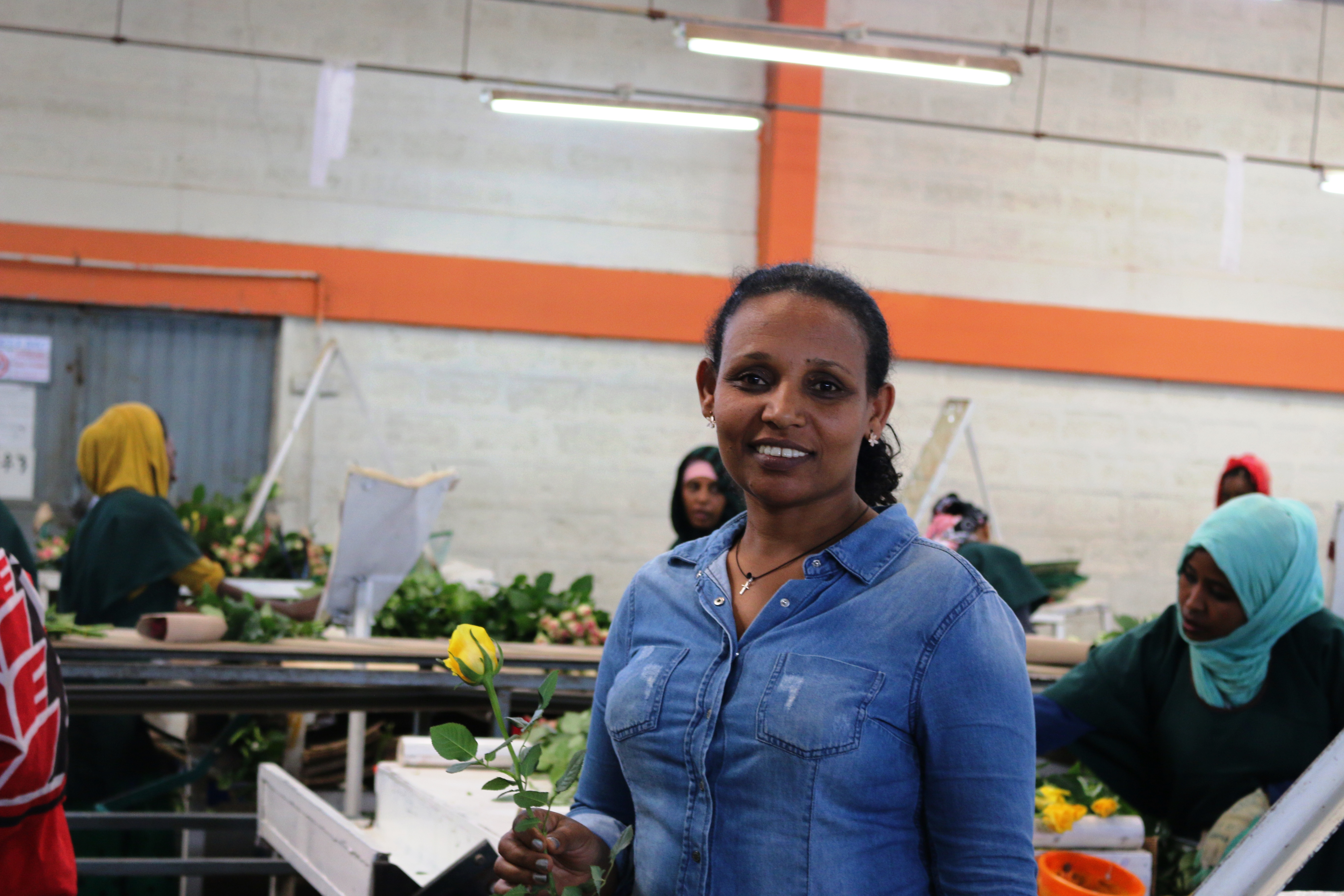Minaye flowers in Bishoftu (about 50 kilometers from Addis Ababa in Ethiopia) was, just like many farms, not immune to rampage and disruptions of day-to-day operations whenever there was conflict between staff and management. A year now, the farm has not had any riots. Not that there haven’t been disagreements between the workers and their employer, but because they now know that solving conflicts can be done so amicably.
This is one of the positives that training union leaders and all staff in the farm on conflict resolution has resulted to. The National Federation of Farm, Plantation, Fishery and Agro Industry Trade Unions (NFFPFATU), the flower farms umbrella union body, has trained Mineya farm union leaders (among other 29 farms) techniques on how to achieve industry peace in farms, mastering collective bargaining techniques and understanding of the labor law (commonly known as Proclamation).
As a result, Minaye flowers union has negotiated through a Collective Bargaining Agreement (CBA) for 18 days as the annual leave for the workers, four days more than provided in the Labour Law. Further, through a CBA, the farm offers an hour allowance for nursing mothers until the child is eight months – they can either report to work at 8am instead of 7am, or leave at 4pm instead of 5pm. The Labour Law has no provision of nursing hours. In the past, employees who are also part time students would have to take days off their annual leave during exam days. This has now changed as they get days off once one submits the exam dates from their school.

Aselefech Desalegn, a union leader and women committee chair notes that abduction of girls and sexual harassment were considered normal occurrences. She’s however grateful that this is now almost negligible as through various trainings to all staff, including senior management, they know what is wrong and what is right. “In the past, there was no formal way of reporting. People did not know what they should do in case they were harassed, says Desalegn who has been in the union for five years now.
Desalegn cites a case where a female worker was being pestered by a man who was at that time not working at the farm. However, without the knowledge of the management, the man applied for a job and unfortunately was positioned in the same department with the woman he was harassing. The lady alerted the committee of the happenings and the harasser got word of it. He never showed up for work henceforth. He would, however, continue to harass her outside work. The lady filed a complaint with the Women, Children and Youth services, a government body mandated to undertake such cases. The committee together with the union wrote to the body to support her case. “Such knowledge of what to do when harassed has changed things drastically. This comes from the consistent trainings we have undergone,” adds Desalegn.
Though various strides have been noted, the farm union aims to bargain for salary increment and bonuses as the average pay for flower workers is still very low, at an average of $45 dollars monthly income.
NFFPFATU is an umbrella organization consisting of 204 basic unions having more than one hundred twenty thousand 120,000 members. Together with Hivos Women@Work Campaign, NFFPFATU has been working to improve the livelihoods of women by promoting a living wage for workers, protection of workers from sexual and gender-based violence, improvement of occupational health and safety at the workplace, facilitating access to reproductive and health rights at the workplace and developing the capacities of workers’ representation.




